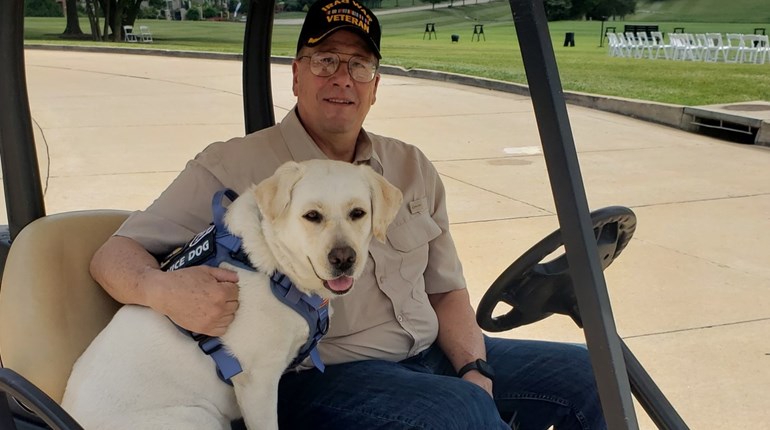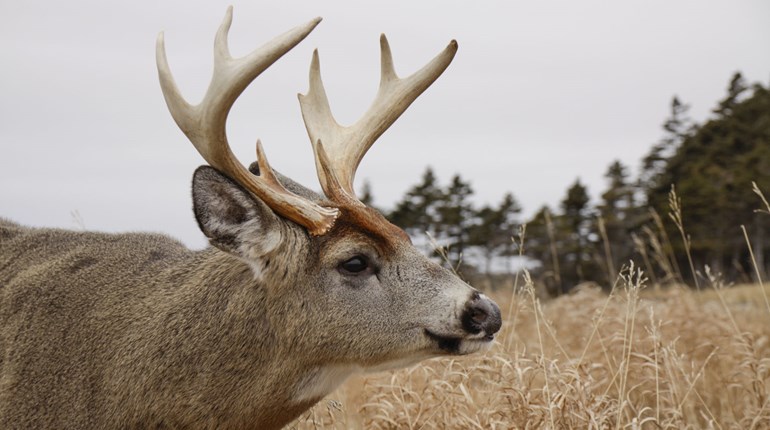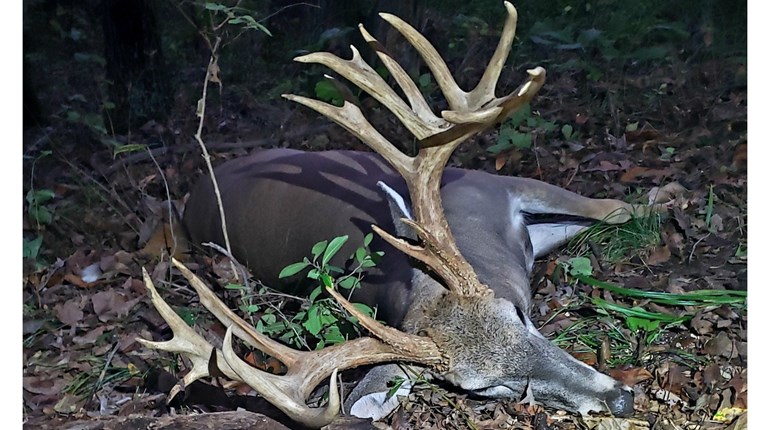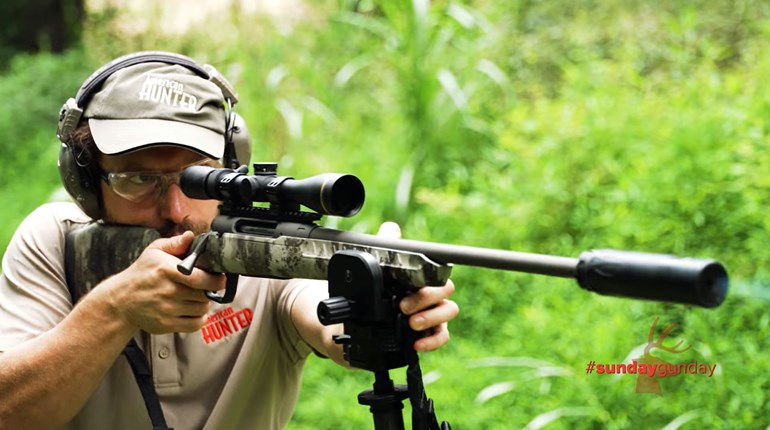
The kids want a dog, and secretly, so do you. Only your spouse isn't fully convinced, because she remembers the neighbor's unruly Lab that slobbered all over her prom dress. But if you choose a breed that fits your family's lifestyle, and invest time training it, you can have a dog that will both be a great pet and "earn its keep" by fetching a duck or pointing a bird once occasionally. Here are a few breeds-a couple of which are not officially recognized-that can quickly become a furry extension of your family.
Labrador Retriever
You knew this one would make the list, because millions of Americans swear by them. First recognized by the American Kennel Club in 1917, this 55-to 95-pound web-footed, oily-haired ball of family affection has been the world's most popular breed for many years. That's because Labs are gentle, loyal, loving and they fetch ducks and your son's Frisbee like there's no tomorrow. They come in the color of your choice-as long as it's black, yellow or chocolate-and are as smart as dogs come.
My black Lab, Dallas, learned to open doors, fetch cold libations from the fridge, find the remote control, turn off lights and do just about anything possible without opposable thumbs. But she'd also fetch ducks and geese like it was her life's mission.
The only downside to a Lab? They're big dogs that at times can be rambunctious in their zeal for affection. Their tails are made for use as rudders for steering through dangerous water-and for clearing coffee tables in an instant. They also shed like cheap 1970s carpet. But if you are prepared for these things, a well-trained Lab will bring your family years of joy.
 Treeing Feist
Treeing Feist
Many people like Jack Russell terriers because they are transportable, loyal and tenacious tracking dogs. (In Africa, nearly every hunting family has one.) Yet many people don't like them because their motors shut off less frequently than an atomic clock. But there is a breed of small dogs collectively called feists-25- to 32-pound rat terrier mixes-that hunt tenaciously but make calm, affable companions.
I met Danny Williams of Donophan MO at the Squirrel Master's Classic squirrel hunting tournament held in Alabama. Williams is the President of the American Treeing Feist Association (ATFA) who breeds a special brand of feists that are essentially rat terriers mixed with small quantities of blue tick hound. He brought a few of his prized dogs to the tournament, and they rarely missed a squirrel. Using their eyes, ears and nose in conjunction, they find squirrels and bark when they have them treed, then fetch the downed game to the hunter's hand. Then off to the next squirrel they go, until the whole world is rid of squirrels, or you take them home, whichever comes first. (By the way, squirrel hunting with dogs may be the ultimate hunt for kids, because it is nonstop action and squirrels are everywhere.)
Williams says this breed also makes good blood tracking dogs (to be used if a hunter wounds an animal), and can be trained to track or hunt nearly any small game species. Just as importantly, he says they're proven to be ideal house dogs because of their laid-back temperament and diminutive stature. While they are natural barkers, treeing feists can be trained to only bark when on a tree.
"Many people buy dogs from me with full intentions of making them house dogs," said Williams, whose dogs usually win the ATFA championship. "It's amazing how fast they can be housebroken," he said. "They are super-smart dogs that don't shed, and that get along with people and kids."
If you're looking for a smaller dog that can track downed deer and hunt small game, consider a feist. Williams' Squirrel Run Kennels sells pups for $300 or fully finished squirrel dogs for $3,000-$5,000.
 Wirehaired Pointing Griffon
Wirehaired Pointing Griffon
Many fans of the breed say a wirehaired pointing Griffon (WPG) is the way to go if you're looking for a versatile hunting dog that won't turn your house upside down and set it ablaze. These Griffons are medium/large, coarse-haired water dogs that also point upland birds.
"I went from a Chesapeake Bay retriever to a Griffon and was amazed that I could have a 55-pound dog that would do what an 85-pound dog would do," said James Craig of Lightening Bar Kennels in Kansas. Craig became such a big fan of the breed that he now breeds and raises them. And unlike a Chessie, which can often be surly, a WPG won't bite a kid's hand if he tries to steal a snack.
"We call them "leaners," said Craig, "because they'll push you right off the couch! They're low shedders, lovable and they have fantastic drive in the field. They can go into icy waters to get ducks, and then do a 200-yard cast to point a prairie chicken. In fact," Craig continues, "sometimes it's hard to believe that they're the same dog as the one that's passed out next to you on the couch!"
Craig cautions prospective owners, however, that this breed requires lots of exercise to live up to their potential, so it's probably not the greatest dog if you don't have room-or time-to allow it to roam. And due to the breed's novelty, they also can be expensive. (Craig sells his pups for $1,300.) But if you can take this dog out for daily romps and training, the WPG may be the most versatile (and friendly) family gun dog going. Plus they've got fabulous eyebrows.
For more information, contact James Craig at Lightening Bar Kennel, (785) 863-3056.
 Spaniels and Spaniel Mixes
Spaniels and Spaniel Mixes
The spaniel family of gun dogs, Boykins, springers and cockers, are wildly popular as house-and-hunting dogs because they are versatile in the field and cuddly on the carpet. While few would argue that these breeds are not excellent gun dogs in general, some believe the individual breeds have subtle shortcomings. For example, cockers are so small they struggle fetching big birds like geese; and Boykins can be very high strung. So some breeders, like Westerly Preserve near Middleburg, VA, have taken what they see at the best traits from spaniels to produce their own unique brand of birddogs.
Westerly gun dogs (you won't find them on the AKC's website) are 35- to 55-pound, long-haired sporting dogs genetically comprised of 1/3 Boykin, 1/3 springer, and 1/3 cocker spaniel.
"They are in every way as capable water dogs as Labs," said Fritz Reuter of Westerly Preserve, "but half the size, so they fit in the house nicely and you don't have to feed them as much!" While they are natural retrievers in cold water, they're specifically bred for their upland flushing abilities, being as adept at fetching doves in southern fields as they are finding and flushing pheasants out West.
"They also make great pets," said Reuters, whose dog Mosby accompanies him everywhere, from hunting fields to beaches and local restaurants. "They're extremely loyal and biddable, but not nearly as high-strung as Boykins-the breed they most closely resemble," he said.
Westerly Preserve sells their pups for $800.







































